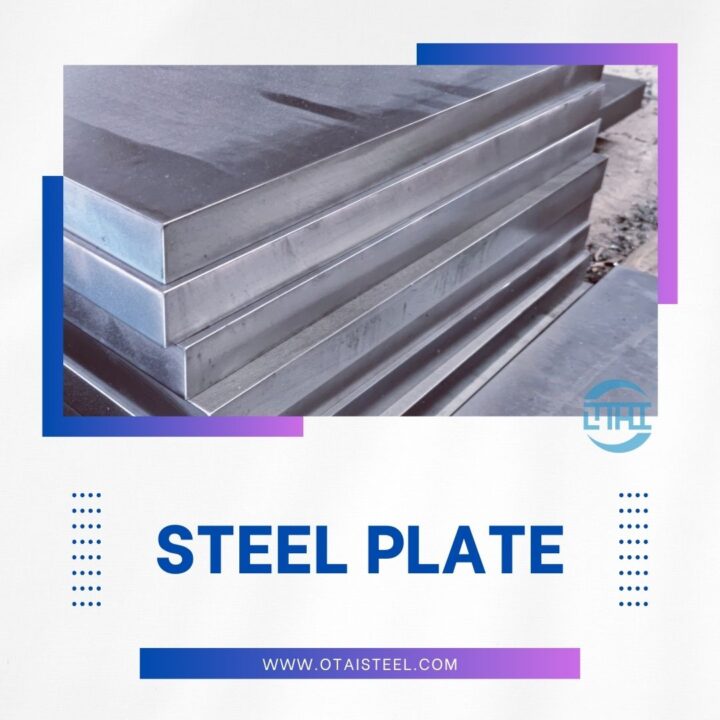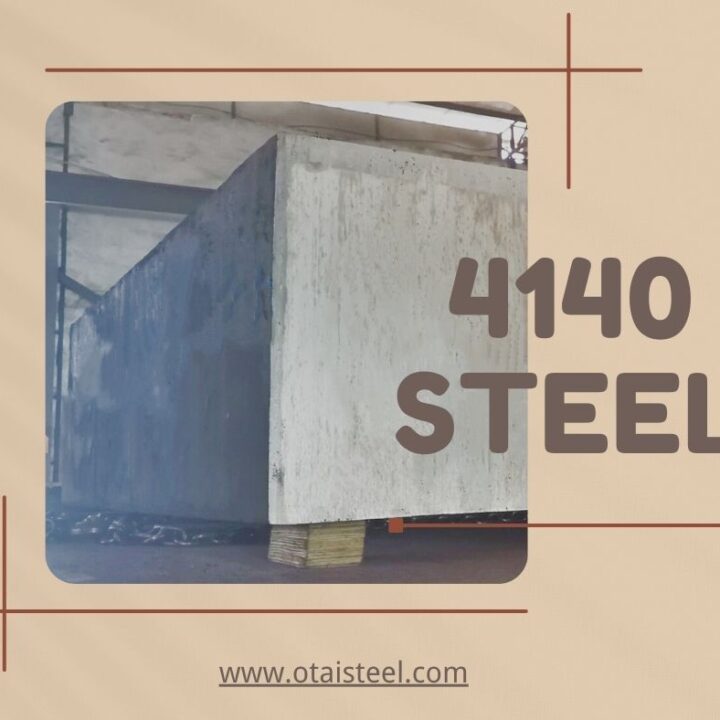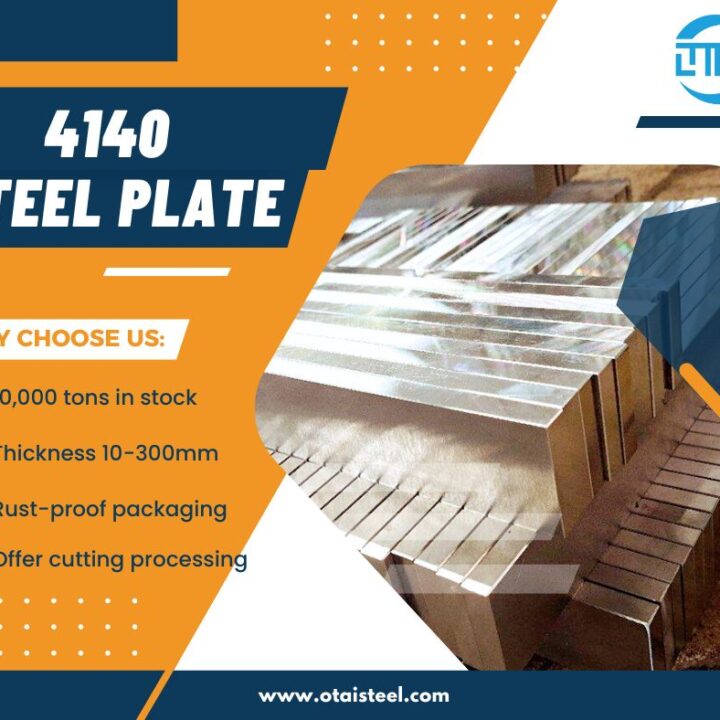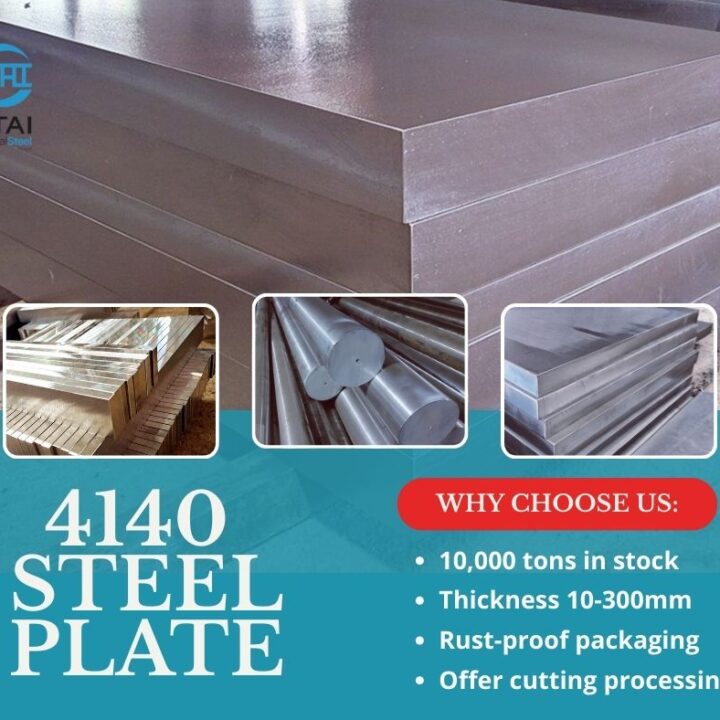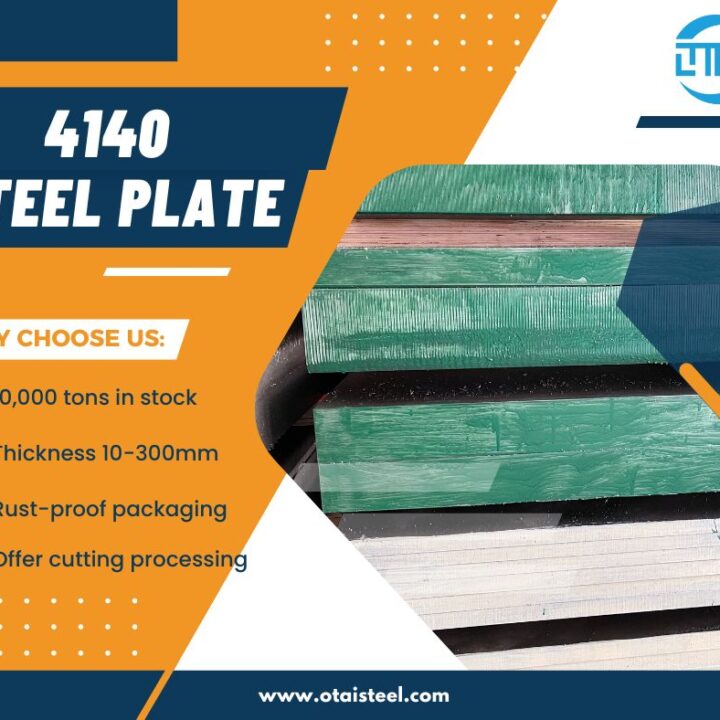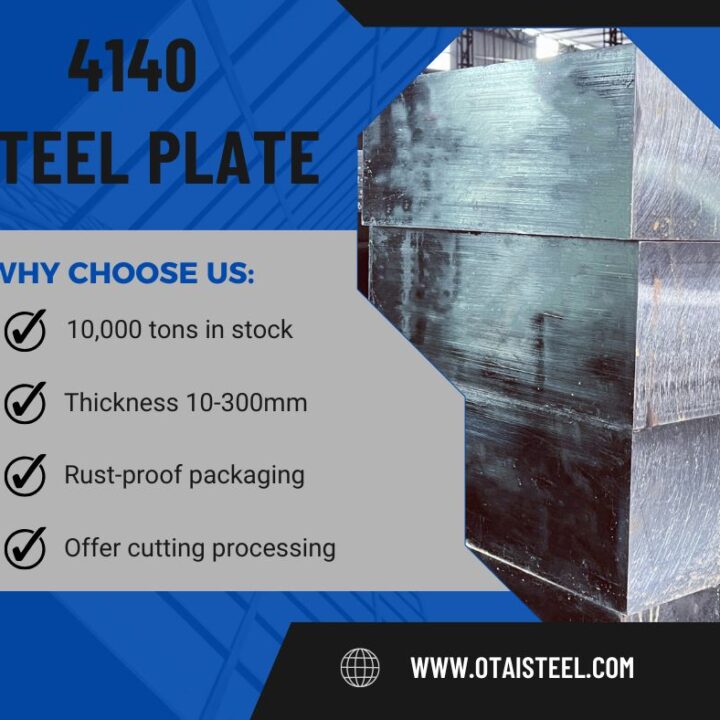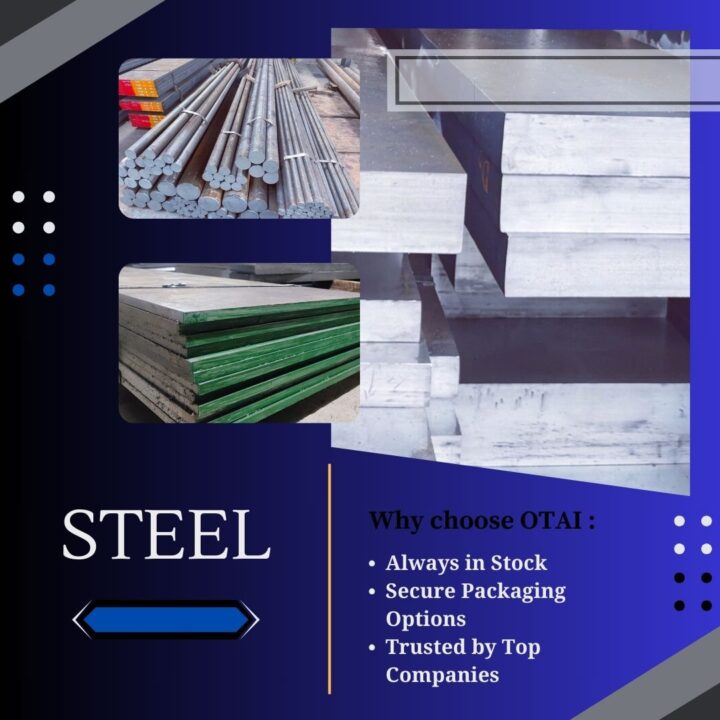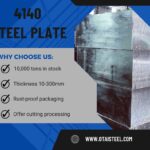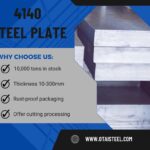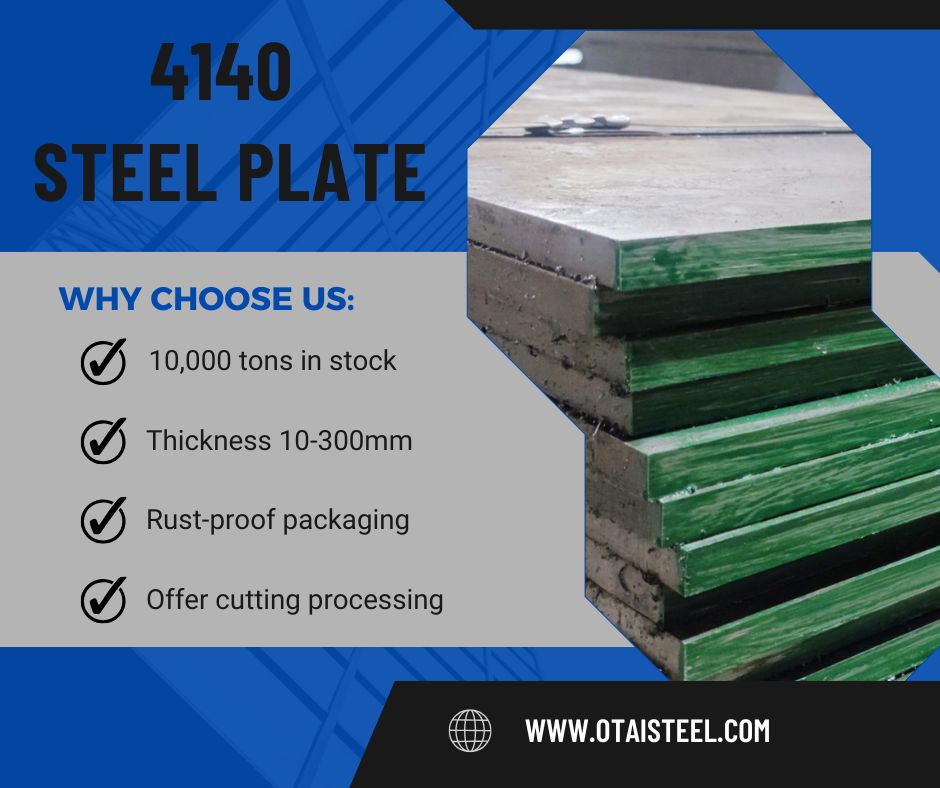 4140 Steel Chemistry – Deep Dive into Composition & Performance
4140 Steel Chemistry – Deep Dive into Composition & Performance
When engineers and buyers discuss 4140 steel chemistry, they are exploring the very heart of why this alloy is so trusted in demanding industries. Its precise chemical composition is the secret behind its strength, toughness, and versatility. In this article, we’ll fully explore the 4140 steel chemistry composition, how each chemical element affects performance, and why it’s a favorite for high-stress applications.
🔬 4140 Steel Chemistry Composition
4140 is a chromium-molybdenum alloy steel with medium carbon content. Its chemistry gives it excellent mechanical properties. Here’s the typical chemical composition:
| Element | Typical Range (%) | Function in Steel |
|---|---|---|
| Carbon (C) | 0.38 – 0.43 | Boosts hardness, tensile strength, and wear resistance |
| Chromium (Cr) | 0.80 – 1.10 | Improves hardenability, strength, and mild corrosion resistance |
| Molybdenum (Mo) | 0.15 – 0.25 | Enhances high-temperature strength, prevents brittleness |
| Manganese (Mn) | 0.75 – 1.00 | Improves hardenability and overall toughness |
| Silicon (Si) | 0.15 – 0.30 | Increases strength, acts as a deoxidizer during steelmaking |
| Phosphorus (P) | ≤ 0.035 | Kept low to avoid brittleness |
| Sulfur (S) | ≤ 0.040 | Controlled to maintain toughness while aiding machinability |
This 4140 steel chemical composition makes it one of the most reliable medium-alloy steels in manufacturing.
⚙️ Chemistry & Mechanical Properties
The synergy of carbon, chromium, and molybdenum defines 4140’s mechanical performance. Typical mechanical properties include:
| Property | Typical Value |
| Tensile Strength | 655 – 1080 MPa |
| Yield Strength | 415 – 930 MPa |
| Hardness (HB) | 197 – 302 (annealed to quenched & tempered) |
| Elongation | 12 – 25% |
| Impact Strength | High, maintains toughness at low temperatures |
The medium 4140 steel carbon content allows deep hardening while keeping toughness high — a crucial balance for parts that face shock and fatigue.
🔥 Microstructure & Heat Treatment Effects
Chemistry alone isn’t enough — heat treatment unlocks 4140’s full potential. Here’s what happens during different processes:
- Annealing: Produces a soft, pearlitic microstructure that improves machinability.
- Quenching: Transforms austenite into martensite, dramatically increasing hardness.
- Tempering: Converts brittle martensite into tempered martensite, balancing strength with toughness.
Because chromium and molybdenum improve hardenability, even thick sections of 4140 steel develop a uniform hardness when quenched. This is why 4140 steel hardness after quenching is consistent across large parts.
🏭 Industrial Applications
The combination of chemistry and heat treatment makes 4140 a go-to material for:
- Shafts, axles, and crankshafts
- Gears, couplings, and sprockets
- High-strength bolts and studs
- Tool holders, dies, and molds
- Oil & gas drilling tools
Its strength and toughness allow these parts to withstand heavy shock, torque, and fatigue.
🧪 4140 vs Other Alloy Steels
Compared to other steels, 4140 steel chemistry strikes an excellent cost-performance balance:
- Vs 1045: Offers higher hardenability and wear resistance due to chromium and molybdenum.
- Vs 4340: Slightly lower strength but more affordable while still providing excellent toughness.
- Vs 8620: 4140 is preferred where core strength is more critical than surface hardness.
This explains why so many industries standardize on 4140 when they need performance without overpaying.
🌟 Why Choose Otai Special Steel
At Otai Special Steel, we keep over 10,000 tons of alloy steels in stock, including 4140 steel plates, bars, and blocks in sizes from 6mm to 300mm thick. We offer:
- Reliable Quality: 100% UT-tested materials with mill certificates.
- Flexible Processing: Saw cutting, heat treatment, and custom packaging.
- Global Supply: Experience serving clients in automotive, oil & gas, and heavy equipment industries worldwide.
- Fast Delivery: Large inventory ensures short lead times and consistent availability.
❓ FAQ – 4140 Steel Chemistry
Q1: Why is chromium so important in 4140 steel?
Chromium improves hardenability, strength, and mild corrosion resistance, which makes 4140 ideal for critical components.
Q2: Can I machine 4140 in its hardened state?
Yes, but it’s more difficult. Most machinists prefer to machine it in the annealed state, then heat treat.
Q3: How does molybdenum improve 4140 steel?
It prevents temper embrittlement and maintains toughness after heat treatment, making 4140 more reliable under stress.
Q4: What’s the main advantage of 4140 over carbon steels like 1045?
Better hardenability and strength, which means longer service life in high-load applications.
Q5: Does 4140 steel resist rust?
Only to a small degree. While chromium improves corrosion resistance slightly, 4140 still needs a coating or oil for protection in humid environments.

